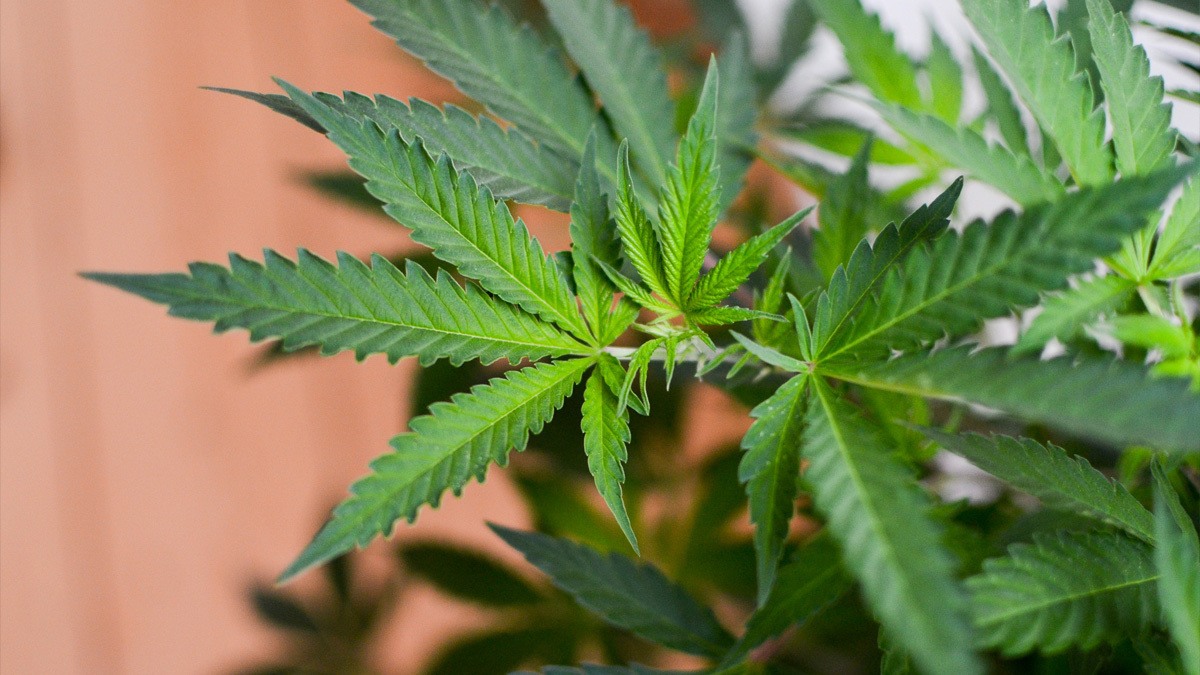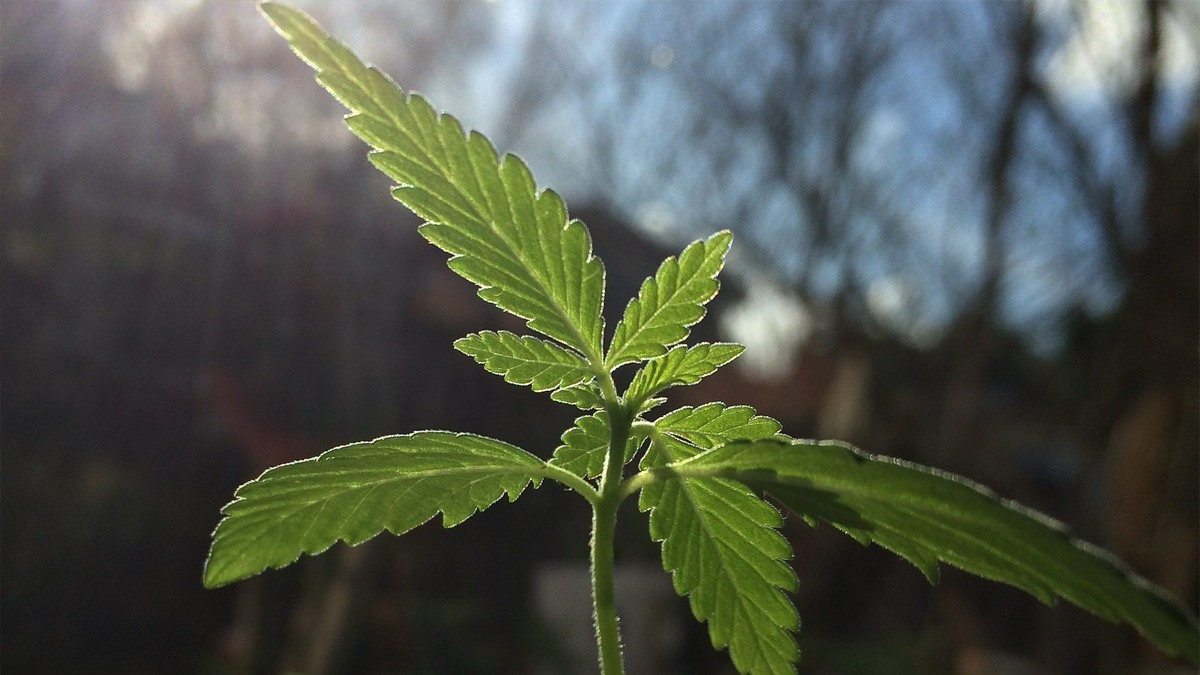
Ohio voters approved a ballot initiative to legalize marijuana on Tuesday, making the state the 24th in the U.S. to end prohibition.
The measure, campaigned for by the Coalition to Regulate Marijuana Like Alcohol (CTRMLA), establishes a regulatory framework to allow adults 21 and older to purchase, possess and cultivate cannabis. Recent surveys signaled it was in a strong position to pass—in spite of opposition from the governor and GOP state lawmakers.
“Marijuana is no longer a controversial issue,” Tom Haren, spokesperson for the campaign, told Marijuana Moment. “Ohioans demonstrated this by passing State Issue 2 in a landslide. Ohioans are being extremely clear on the future they want for our state: adult-use marijuana legal and regulated.”
Voters were presented with summary language for the initiative—designated as Issue 2—that says the measure will legalize and regulate “the cultivation, processing, sale, purchase, possession, home grow, and use of cannabis by adults at least twenty-one years of age.”
“A broad, bipartisan and diverse array of Ohioans spoke clearly tonight,” Ohio Rep. Casey Weinstein (D), who has championed legalization in the legislature, told Marijuana Moment on Tuesday. “The time to legalize marijuana has come. I hope the leaders in the legislature will heed their call and honor the will of the vote.”
Under the approve measure, the legalization of possession of up to 2.5 ounces of marijuana and cultivation of up to six plants (or 12 if two or more adults live in the same household) will become effective on December 7. Officials must get rules in place to start approving licensed retailers within nine months of the effective date.
Ohio voters approved a ballot initiative to legalize marijuana on Tuesday, making the state the 24th in the U.S. to end prohibition.
The measure, campaigned for by the Coalition to Regulate Marijuana Like Alcohol (CTRMLA), establishes a regulatory framework to allow adults 21 and older to purchase, possess and cultivate cannabis. Recent surveys signaled it was in a strong position to pass—in spite of opposition from the governor and GOP state lawmakers.
“Marijuana is no longer a controversial issue,” Tom Haren, spokesperson for the campaign, told Marijuana Moment. “Ohioans demonstrated this by passing State Issue 2 in a landslide. Ohioans are being extremely clear on the future they want for our state: adult-use marijuana legal and regulated.”
Voters were presented with summary language for the initiative—designated as Issue 2—that says the measure will legalize and regulate “the cultivation, processing, sale, purchase, possession, home grow, and use of cannabis by adults at least twenty-one years of age.”
“A broad, bipartisan and diverse array of Ohioans spoke clearly tonight,” Ohio Rep. Casey Weinstein (D), who has championed legalization in the legislature, told Marijuana Moment on Tuesday. “The time to legalize marijuana has come. I hope the leaders in the legislature will heed their call and honor the will of the vote.”
Under the approve measure, the legalization of possession of up to 2.5 ounces of marijuana and cultivation of up to six plants (or 12 if two or more adults live in the same household) will become effective on December 7. Officials must get rules in place to start approving licensed retailers within nine months of the effective date.
Here are the key provisions of the Ohio legalization ballot measure.
- The initiative would legalize possession of up to 2.5 ounces of cannabis for adults 21 and older, and they could also have up to 15 grams of marijuana concentrates.
- Individuals could grow up to six plants for personal use, with a maximum 12 plants per household.
- A 10 percent sales tax would be imposed on cannabis sales, with revenue being divided up to support social equity and jobs programs (36 percent), localities that allow adult-use marijuana enterprises to operate in their area (36 percent), education and substance misuse programs (25 percent) and administrative costs of implementing the system (three percent).
- A Division of Cannabis Control would be established under the state Department of Commerce. It would have authority to “license, regulate, investigate, and penalize adult use cannabis operators, adult use testing laboratories, and individuals required to be licensed.”
- The measure gives current medical cannabis businesses a head start in the recreational market. Regulators would need to begin issuing adult-use licenses to qualified applicants who operate existing medical operations within nine months of enactment.
- The division would also be required to issue 40 recreational cultivator licenses and 50 adult-use retailer licenses “with a preference to applications who are participants under the cannabis social equity and jobs program.” And it would authorize regulators to issue additional licenses for the recreational market two years after the first operator is approved.
- Individual municipalities would be able to opt out of allowing new recreational cannabis companies from opening in their area, but they could not block existing medical marijuana firms even if they want to add co-located adult-use operations. Employers could also maintain policies prohibiting workers from consuming cannabis for adult use.
- Further, regulators would be required to “enter into an agreement with the Department of Mental Health and Addiction Services” to provide “cannabis addiction services,” which would involve “education and treatment for individuals with addiction issues related to cannabis or other controlled substances including opioids.”
- With respect to social equity, some advocates are concerned about the lack of specific language on automatic expungements to clear the records of people with convictions for offenses that would be made legal under the legislation. That said, the measure does include a provision requiring regulators to “study and fund” criminal justice reform initiatives including expungements.
“Cannabis legalization is an issue that unites Democrats, Republicans and Independents,” NORML Deputy Director Paul Armentano said on Tuesday. “Ohioans have seen similar legalization laws adopted in neighboring states and they know that regulating the cannabis market is preferable to the failed policy of prohibition. It is imperative that elected officials respect the voters’ decision and implement this measure in a manner that is consistent with the sentiments of the majority of the electorate.”
Matthew Schweich, interim executive director of the Marijuana Policy Project (MPP) told Marijuana Moment that Tuesday’s vote “shows that a cannabis legalization campaign can win anytime and anywhere.”
“More importantly, the people of Ohio will benefit greatly from a cannabis policy based on common sense and fairness,” he said. “The plague of cannabis prohibition has finally been lifted from the Buckeye State.”
The Ohio measure underwent an extensive path to passage that took activists to the courts, the legislature and finally the ballot.
Organizers first tried putting the measure on the state’s 2022 ballot, but procedural complications prevented that from happening. They turned in enough signatures to trigger a legislative review by lawmakers, but the timing of their initial submission was challenged.
CTRMLA filed suit to force ballot placement, but that was unsuccessful with respect to the 2022 election. However, the state agreed to a settlement that meant supporters would not have to collect the first round of initial signatures again and that the initiative would be immediately retransmitted to the legislature at the start of the 2023 session.
Once the signatures were transmitted to lawmaker this year, they had four months to act on the proposal but declined to do so. Advocates then collected the remaining signatures for ballot placement, which were officially certified by the state in August. The Ohio Ballot Board finalized the summary language later that month.
Over recent months, polls have shown consistent majority support for the reform. For example, one survey released last month found that 59 percent of respondents planned to vote yes on Issue 2, while 39 percent opposed it.
Another poll of likely voters published last month found that 57 percent supported the legalization measure, including a slim majority of Republicans.
A survey of 35 state lawmakers found that majorities of both Democrats (63 percent) and Republicans (52 percent) expected voters to approve the measure regardless of their own opinions about it.
But while Ohio lawmakers might have expected the initiative to pass, many Republican elected officials didn’t want it to. As early voting kicked off late last month, the GOP-controlled Senate passed a resolution urging residents to reject measure.
What happens next in the legislature remains to be seen. Senate President Matt Huffman (R) said last month that it’s “coming right back before this body” for lawmakers to amend. Huffman later clarified that he wouldn’t seek to repeal the legalization plan entirely but would instead “advocate for reviewing it and repealing things or changing things that are in it.”
A number of Ohio lawmakers said in September that they doubted the legislature would seek to repeal a voter-passed legalization law.
Ahead of the vote, both sides of the campaign stepped up messaging and get-out-the-vote efforts as the election drew near. Last month, the yes campaign sent cease and desist letters to TV stations airing what organizers called opposition advertisements “filled with lies.” And CTRMLA put out a pro-Issue 2 election ad of its own.
Last month, the yes campaign put out another ad, which mocks Ohio from the perspective of a neighboring Michigan town for losing tax revenue when Ohioans drive across state borders to buy marijuana from licensed stores.
The ad came days after a new economic analysis found that Issue 2 would likely produce around $260 million in net benefits to the state on an annual basis.
“Our simulation model suggests that in 90 percent of likely scenarios, recreational marijuana legalization will have a positive net economic benefit on society,” that report said. The modeling also predicted that “extremely positive results are more likely than extremely negative results.”
A separate analysis published in August by Ohio State University researchers found the change could bring in $404 million in annual tax revenue.
Attorney General Dave Yost (R), meanwhile, published an analysis of the initiative that he said is meant to provide voters with “vital clarity and transparency” amid a campaign that has seen “inflamed and inaccurate” rhetoric.
Despite the GOP-led resolution, other Republicans officials in Ohio remain divided on the issue. Gov. Mike DeWine (R) has said he believes “it would be a real mistake for us to have recreational marijuana,” adding that he visited Colorado following its move to legalize in 2012 and saw what he described as an “unmitigated disaster.”
Unlike the top state Republican lawmakers, one of the state’s GOP representatives in Congress—Rep Dave Joyce, co-chair of the Congressional Cannabis Caucus, said in September that he would be voting in favor of the initiative in November. He encouraged “all Ohio voters to participate and make their voices heard on this important issue.”
Senate Banking Committee Chairman Sherrod Brown (D-OH) said late last month he voted in favor of the legalization ballot initiative, calling it a “hard decision” but one that was based on his belief that the reform would promote “safety” for consumers.
Ohio voters rejected a 2015 measure, on a 64–36 vote, that would have amended the state’s constitution to legalize marijuana and give control of the market to a small group of producers. Organizers for the current campaign said they drew on lessons learned from that failure in crafting the current initiative.
Bipartisan Ohio lawmakers filed a separate bill to legalize marijuana in May, offering the legislature another opportunity to take the lead on the reform.
Photo courtesy of Philip Steffan.
Kyle Jaeger via (https://www.marijuanamoment.net/ohio-voters-approve-marijuana-legalization-ballot-initiative-making-it-the-24th-state-to-end-prohibition/)
Keep out of reach of children. For use only by adults 21 years of age and older.













